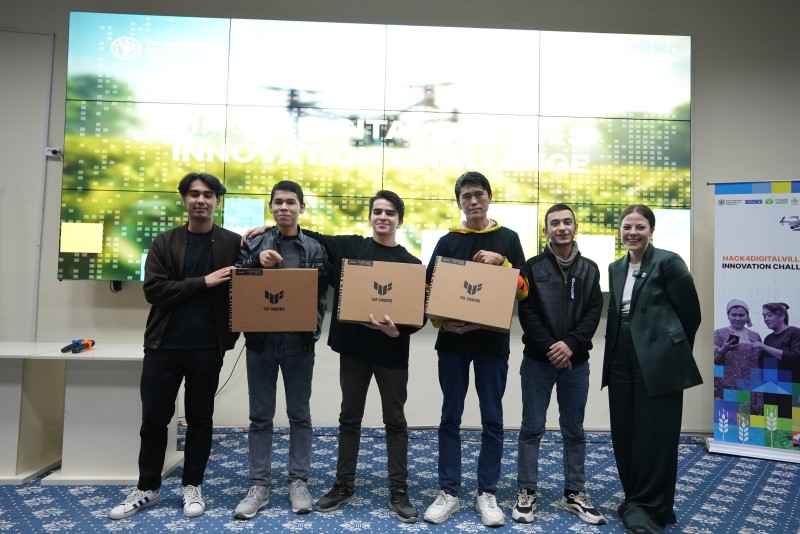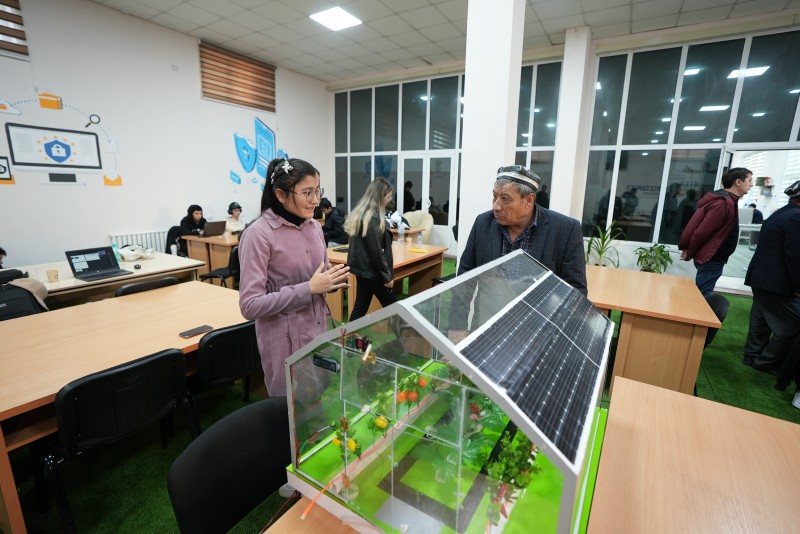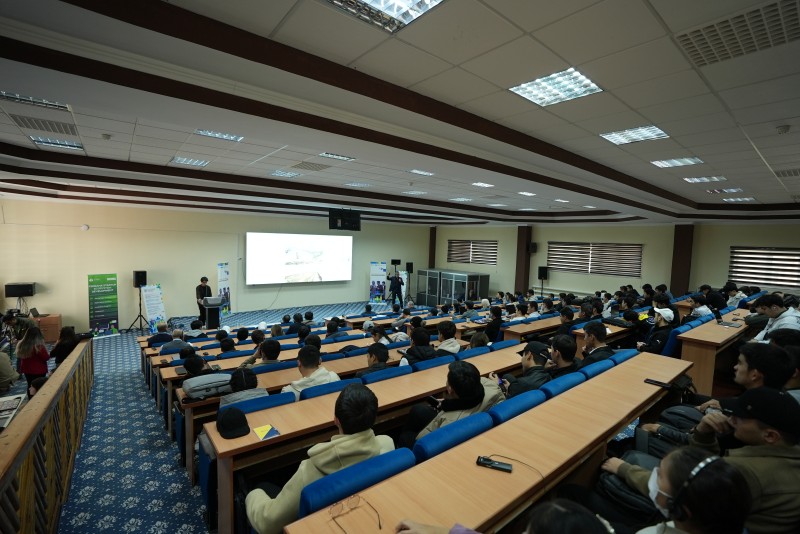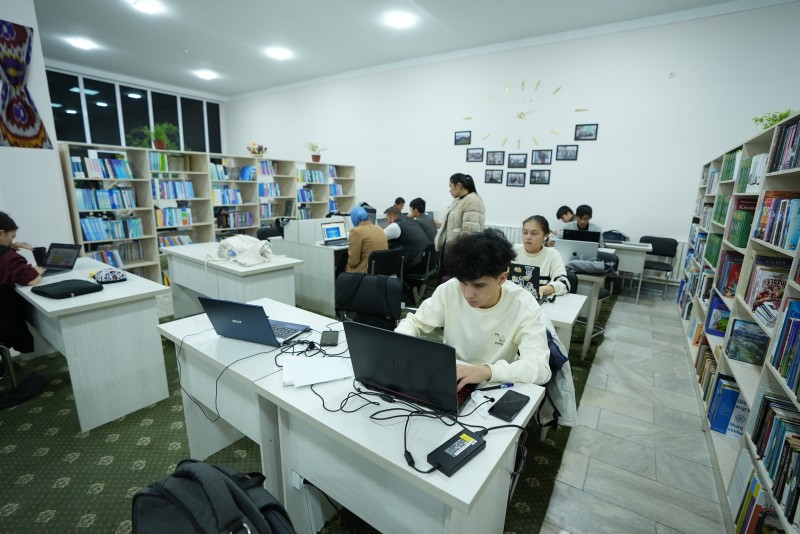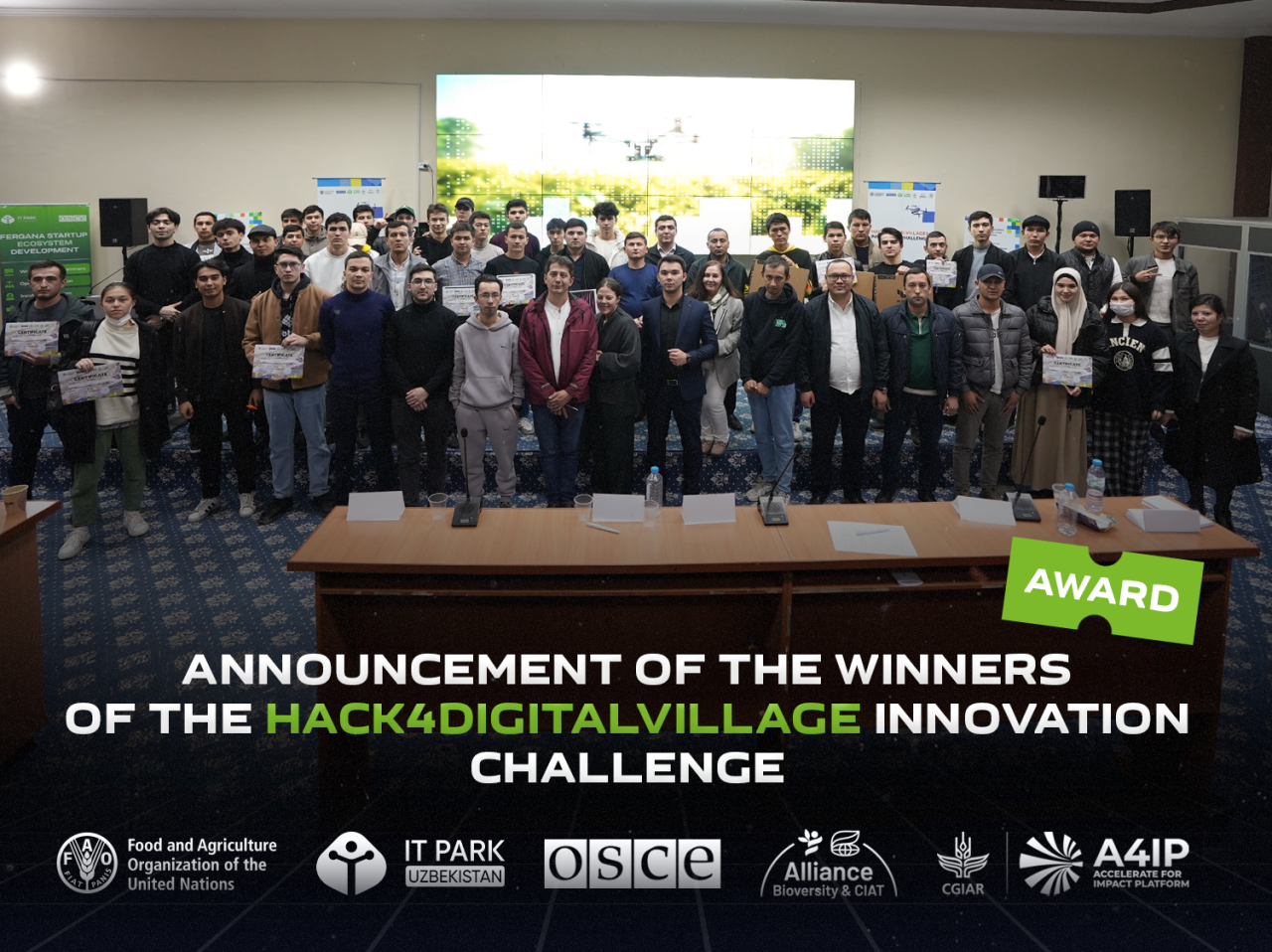
Announcement of the winners of the Hack4DigitalVillage Innovation Challenge
The “Hack4DigitalVillagesʼʼ regional innovation challenge was held this weekend from November 24 to 26 at the Fergana branch of the Tashkent University of Information Technologies. The event was organized by the Food and Agriculture Organization of the United Nations (FAO UN), in collaboration with the Project Coordinator of the OSCE in Uzbekistan and with the support of IT Park and the CGIAR Accelerate for Impact Platform.
The innovation challenge was open to participants from all regions of the country. Applications were submitted by 244 people, from which 103 selected people formed 36 teams. Each team worked on its own project in the following areas:
- Greenhouse Management;
- Efficient water use and irrigation;
- Pesticide management and control;
- Education for agribusiness development.
Out of 36 teams, 16 made it to the final presentation on Demo Day, demonstrating the contestantsʼ exceptional preparedness and expertise.
According to the juryʼs evaluations, the winners of the hackathon were 5 teams:
- 1st place: Team Everest with project Smart Greenhouse — automating greenhouses through automatic ventilation, watering and heating via remote control on a smartphone, with further integration of a smart system for additional greenhouse insulation. The system allows users to monitor daily statistics remotely. (Mirzhalol Shavkatov, Saidomilkhon Saidakbarov);
- 2nd place: Team GreenSpring with a project for remote control of gardens, greenhouses, and fields through phone applications, measurement of soil conditions, and monitoring of all parameters remotely. (Ikromjon Moydinzhanov, Saidakramkhon Saidakhmetov, Kamolidin Nishonov);
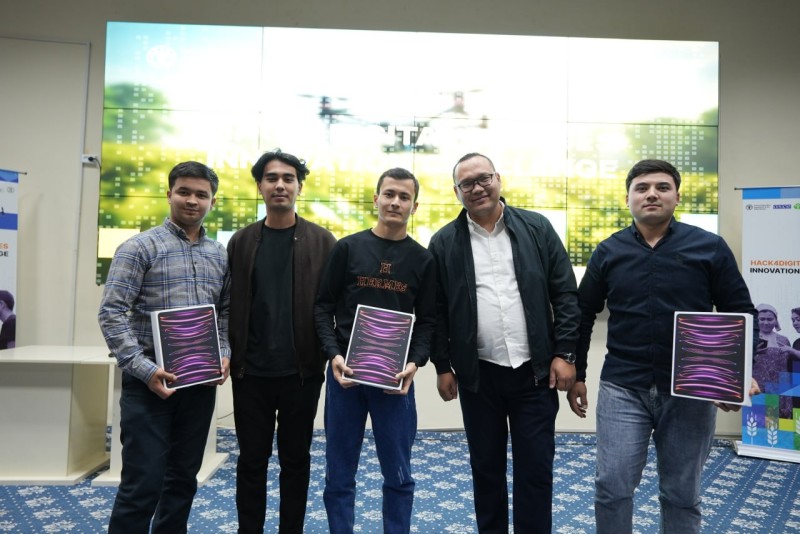
- 3rd place: Team Curved with project Green Guardia — data management system on planting and harvesting, incoporating telemetric IoT data, and allowing photographing of plants for diagnostics; therefore, helping to ease the entry threshold into farming for beginners. (Feruz Khasanov, Ikrom Khaidarov, Aziz Abdurakhmonov);
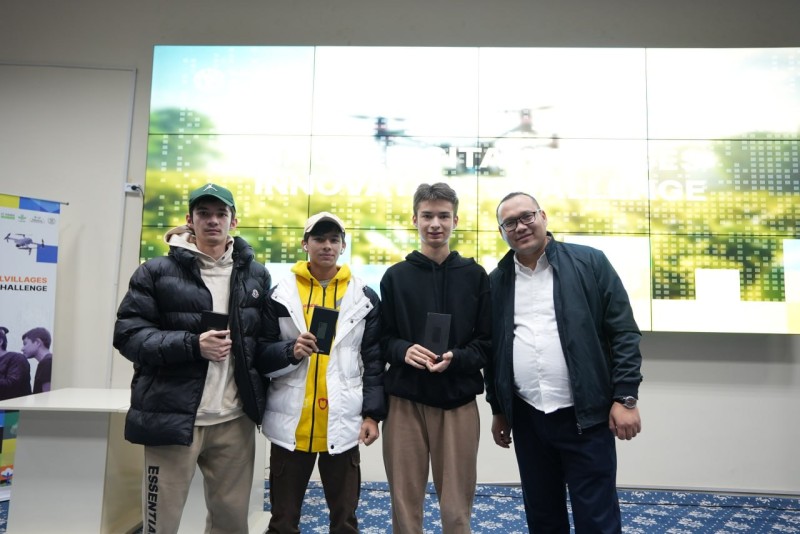
- 4th place: Team RoboGroup with a project for remote control of temperature and humidity in greenhouses, which also automatically adjusts and maintains the temperature, thereby, reducing heating costs (Abbosjon Anvarov, Behruzbek Odilov, Ozodbek Rasulov);
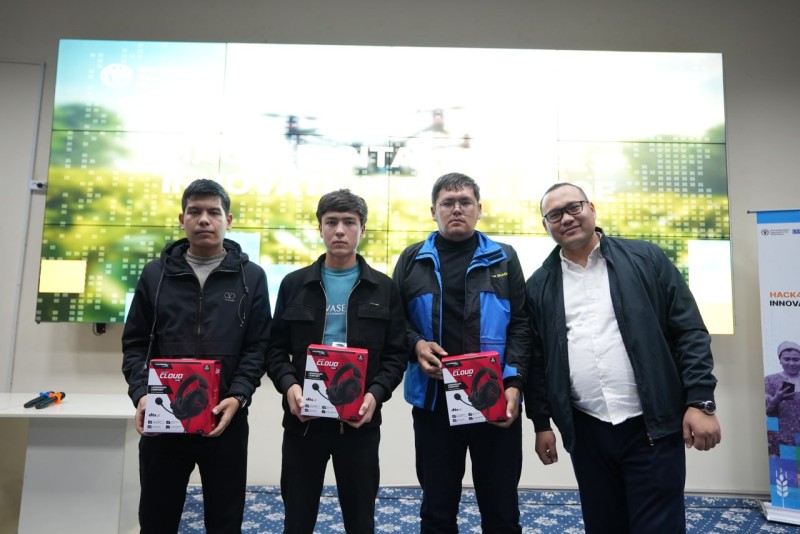
- 5th place: Team Upgrade with project Smart Farm — artificial intelligence with soil sensor installation, capable of conducting complex analyses of soil condition and readiness in a few clicks (Azizjon Rasulov, Behruz Nodirov, Abdumalik Primov).
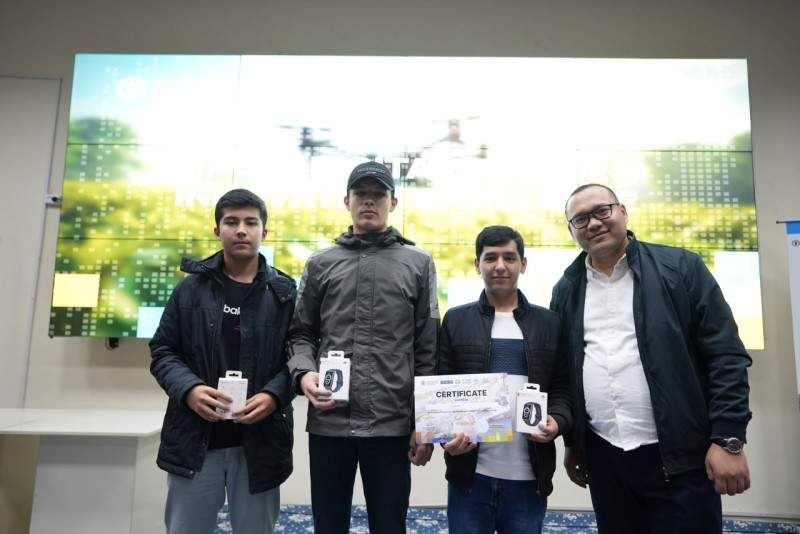
The winners were awarded Asus TUF Gaming laptops, iPad Pro tablets, Samsung Galaxy S23 smartphones, HyperX Cloud headphones, and Huawei Band smartwatches. Additionally, from IT Park, the winners will receive mentorship support, individual training sessions tailored to the needs of each team, free access to office spaces at IT Park, computers, and 3D printers for a period of six months. The primary objective of this support is to assist the winners in realizing their ideas into actual businesses, providing an opportunity to expand and strengthen the foundational knowledge underlying their work.
On November 22, a webinar was conducted for the hackathon participants by experts from FAO and IT Park. Participants were introduced to information about the hackathon and received preliminary data on farmersʼ issues. A significant benefit was the opportunity for participants to directly interact with farmers and mentors. During the first and second days of the hackathon, farmers were present on-site, providing feedback on the proposed ideas and guiding participants towards the development of more efficient and practical solutions. In the future, participants will be invited to the incubation program by the OSCE and the acceleration program by CGIAR. Further details on these initiatives will be announced later.
The following specialists were invited as mentors to provide consulting support:
- • Khayrulla Esonov - National Consultant - Senior Agronomist On Greenhouse Vegetable Production;
• Sherzod Suyarkulov - National Expert on capacity Development and agricultural innovation (AKIS);
• Rasulev Mansurjon - National Digital Agriculture Development Specialist;
• Abror Mamataliev - GIS Developer, Software Engineer;
• Muhammadjon Kosimov - National Project Manager / National Project Support Specialist;
• Aziz Nurbekov - National Project Coordinator;
• Abdikhamid Urazkeldiev - Consultant IWMI;
• Abror Zhuraev - Plant Protection Agency, Head of Pesticides and Chemicals Registration and Control Department;
• Abubakr Abduvakhidov - Software Engineer, Hardware Engineer;
• Abdufotikhhoja Ravshankhojaev - Backend Developer;
• Saidazimkhon Mubarov - Backend Developer;
• Mokhirbek Mustakimov - Frontend Developer, Mobile Developer;
• Sanzhar Asrorov - Fullstack developer;
• Bakhodir Oripov - Agrotechnology Specialist;
• Rasuljon Rakhmatov - Robotics Expert;
• Azizbek Zulunov - Agrotechnology Specialist;
• Aliya Narkulova - Agrotechnology Technician-Economist;
• Sardor Sadykov - OpenAI, Business Analyst.
For the competent evaluation of each project, the following experts were invited as judges for the hackathon:
• Sherzod Suyarkulov (FAOUZ) - National Expert on Capacity Development and Agricultural Innovation (AKIS)
• Katerina Antanevich - Digital Agriculture Expert at the Food and Agriculture Organisation of the United Nations (FAO)
• Abdikhamid Urazkeldiev - Consultant IWMI;
• Abror Mamataliev - GIS Developer, Software Engineer
• Abdufotikhhoja Ravshankhojaev - Backend Developer
To recap, FAOʻs Digital Villages Initiative (DVI) in Uzbekistan aims to improve agricultural productivity, enhance farmersʼ access to digital services, and to uplift rural livelihoods in the Fergana Valley. DVI was launched in Uzbekistan in 2023 to shepherd the communities of Novkent and Yuksalish into a digitally driven future. This initiative is shaped by a participatory approach aimed at empowering rural people, especially youth, to co-identify and develop solutions to the challenges rural communities face.
The DVI project in Uzbekistan encompasses several key elements, including the assembly of open-source IoT devices for greenhouses. Additionally, the project involves the pilot implementation of these devices among smallholders under the Digital Villages Camp. Furthermore, the initiative involves the integration of digital literacy and entrepreneurship training programs in target communities and the establishment of a Digital Villages Hub — a digital platform for knowledge exchange among communities and a digital repository of agricultural know-how on Telegram and YouTube.
Discover more about the Digital Villages Initiative here:
https://www.fao.org/digital-villages-initiative/europe/en
Read more about how the Digital Villages Initiative has already made an impact with smart sensors and living labs in Novkent and Yuksalish:
https://www.fao.org/fao-stories/article/en/c/1649838/
2023-11-29
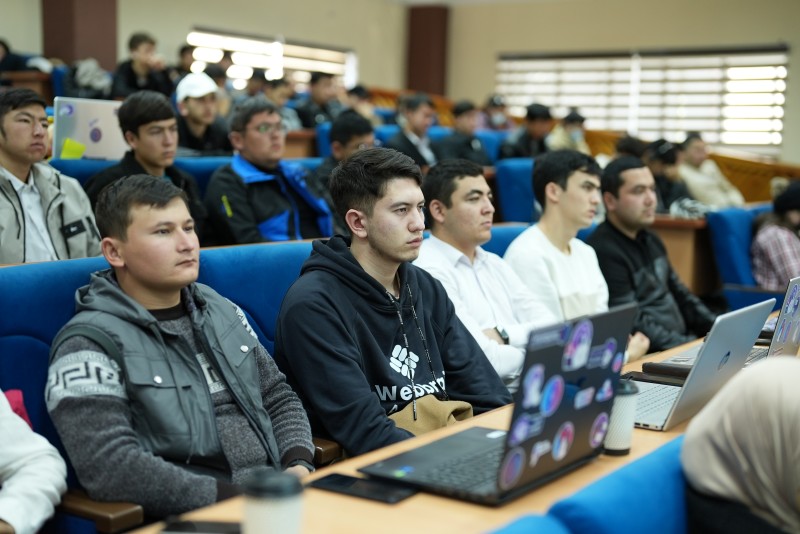
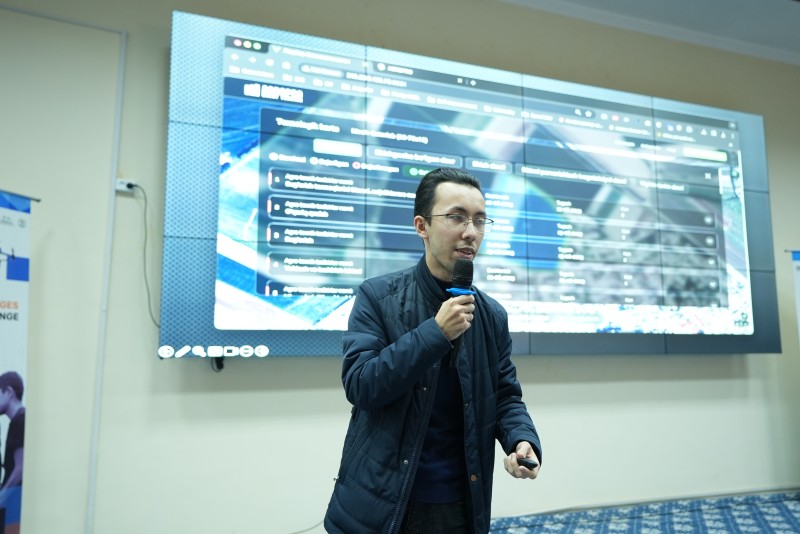
_1701164410.JPG)
